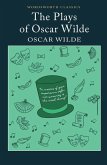The sharpest, funniest comedy about money and morals in the 17th century is still the sharpest and funniest about those things in the 21st. The full play text is accompanied by incisive commentary notes which communicate the devastating comic energy of Volpone's satire. The introduction provides a firm grounding in the play's social and literary contexts, demonstrates how careful close-reading can expand your enjoyment of the comedy, shows the relevance of Jonson's critique to our modern economic systems, and provides a clear picture of how the main relationships in the play function on the page and stage.
Supplemented by a plot summary and annotated bibliography, it is ideal for students of Jonson, city comedy and early modern drama.
Hinweis: Dieser Artikel kann nur an eine deutsche Lieferadresse ausgeliefert werden.
Supplemented by a plot summary and annotated bibliography, it is ideal for students of Jonson, city comedy and early modern drama.
Hinweis: Dieser Artikel kann nur an eine deutsche Lieferadresse ausgeliefert werden.








